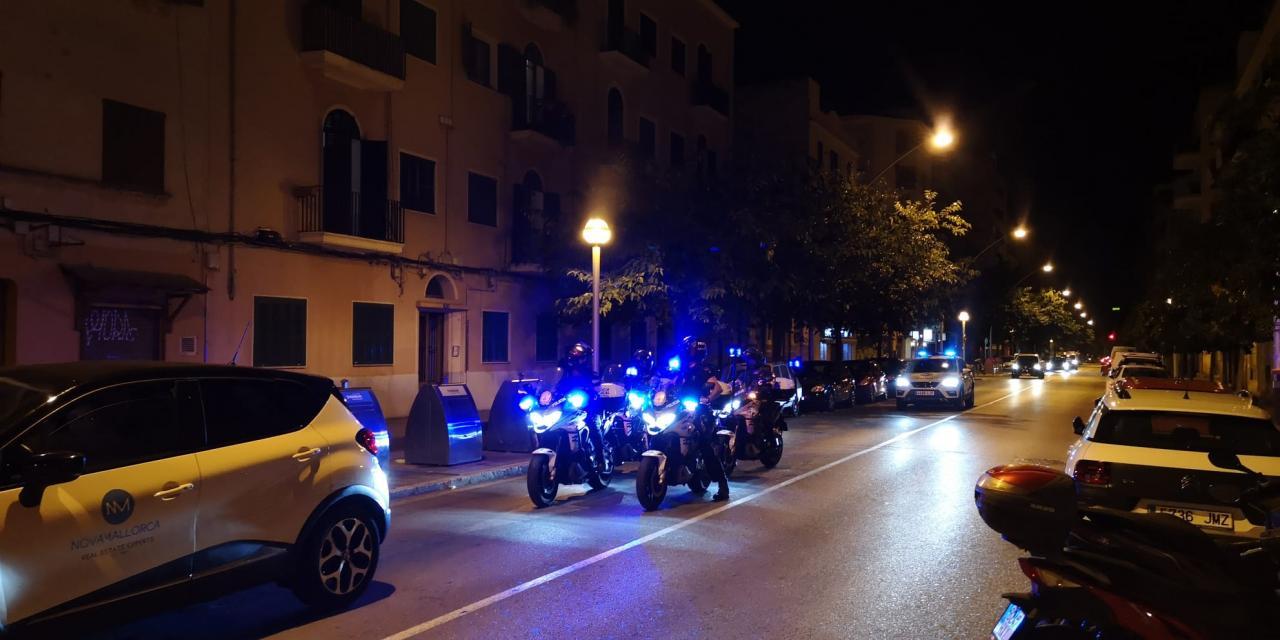When the health minister, Patricia Gómez, announced that four areas of Palma were to be subject to sort-of-lockdown measures, we all had a pretty good idea where she meant. Son Gotleu, for instance. Yes, we know where that is; it's on maps. Following that initial announcement, there was talk of another area getting the same treatment, and this was confirmed on Tuesday. Arquitecte Bennàssar.
Where, what or who is Arquitecte Bennàssar? For the purposes of health administration, it is a health area. So, where is it? Basically, it is an extension of the previous four areas heading nearer to the centre of Palma. Sort-of-lockdown was therefore spreading, but some citizens, even once they were made aware that they live in Arquitecte Bennàssar, were having some difficulty figuring out how the mobility restrictions were to apply, as they weren't entirely sure where the boundaries were. This confusion notwithstanding, they were no doubt grateful to the mayor, José Hila, for letting them know that they were among 9.5% of Palma's population now in a state of sort-of-lockdown.
Ministers being grilled
With parliament returning, ministers were being lined up for a grilling. The education minister admitted that the plan for the start of the school year had been Plan A until it was changed to Plan B; the employment minister apologised for the slowness in getting aid to the self-employed; the president said, look everyone else has got the same sort of problems as us; and the health minister defended her measures. The Balearics, she stressed, was the only region to have prohibited smoking in public spaces. Was this a measure to be defended or not? It would probably depend on your views about smoking rather than the virus.
The playgrounds' mystery solved
"Measures aren't easy," Patricia Gómez continued, without highlighting the business with playgrounds. It was left to Dr. Javier Arranz to shed some light on this mystery closure. It was seemingly nothing to do with children but with their parents. We can't have parents gathering together in small crowds and chatting, he said of taking children to and from school. The same applies to playgrounds; or so it would appear.
The bus strike
Palma EMT bus drivers went on indefinite strike. Not about more pay, the industrial action does nevertheless have a money angle - Palma town hall says that it doesn't have the cash to allocate more funding to the bus service and so meet all the workers' demands. There's a Covid crisis, and EMT is technically bankrupt, the town hall argued.
The current administration has thrown an awful lot of money in EMT's direction - more drivers, new and more buses - and so there should be some sympathy for it stating that now (of all times) isn't the time for a strike. Passenger figures for July revealed a 50% decrease. Dr. Arranz was meanwhile expressing his hope that a reduction in services to minimum levels wouldn't mean non-compliance with Covid measures on overcrowded buses.
Tourism - a special case for treatment
While the Exceltur alliance for tourism excellence was insisting that tourism should be singled out for special treatment by the Spanish government, there was a further reminder - if this were needed - of the devastating impact of the pandemic. There was some reason to cheer the fact that Palma Son Sant Joan Airport was the second busiest airport in Spain in July, but the actual passenger numbers weren't so cheery. Just over 1.24 million passengers may sound a lot, but these were 71% lower than July 2019.
With hopes still being pinned on a reactivation of safe corridors for tourists, the German health minister, Jens Spahn, expressed his concern about the situation with the pandemic in Spain. He was at something of a loss to explain how a country, "which adopted such harsh measures to control the first wave", was now experiencing such high infection rates.
He's not the only one who's at a loss. But maybe he should be worrying about his own country.


No comments
To be able to write a comment, you have to be registered and logged in
Currently there are no comments.